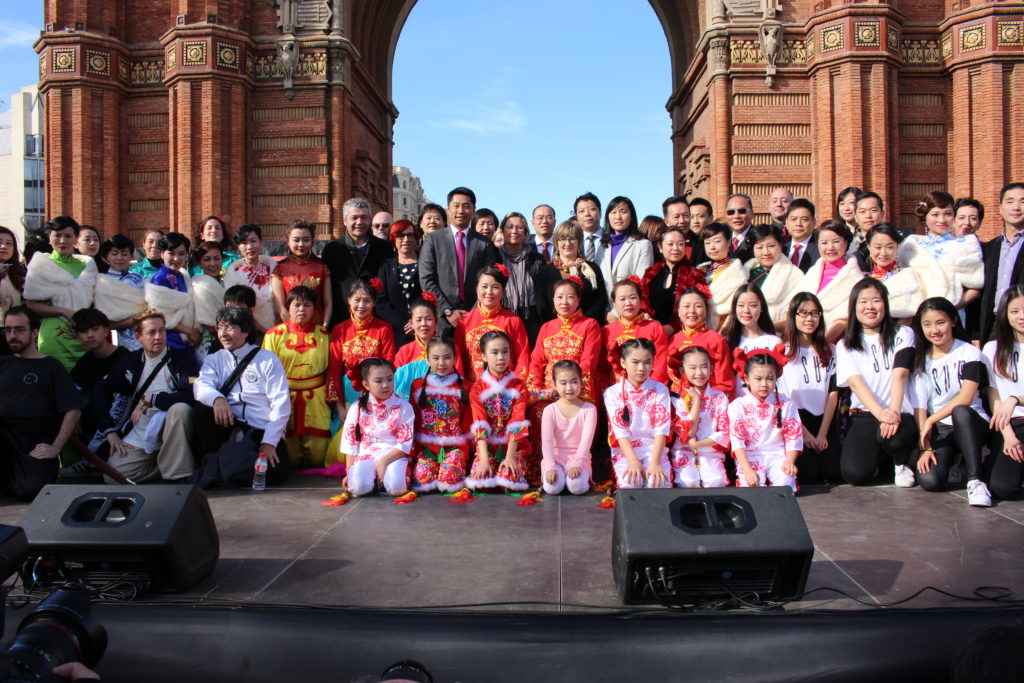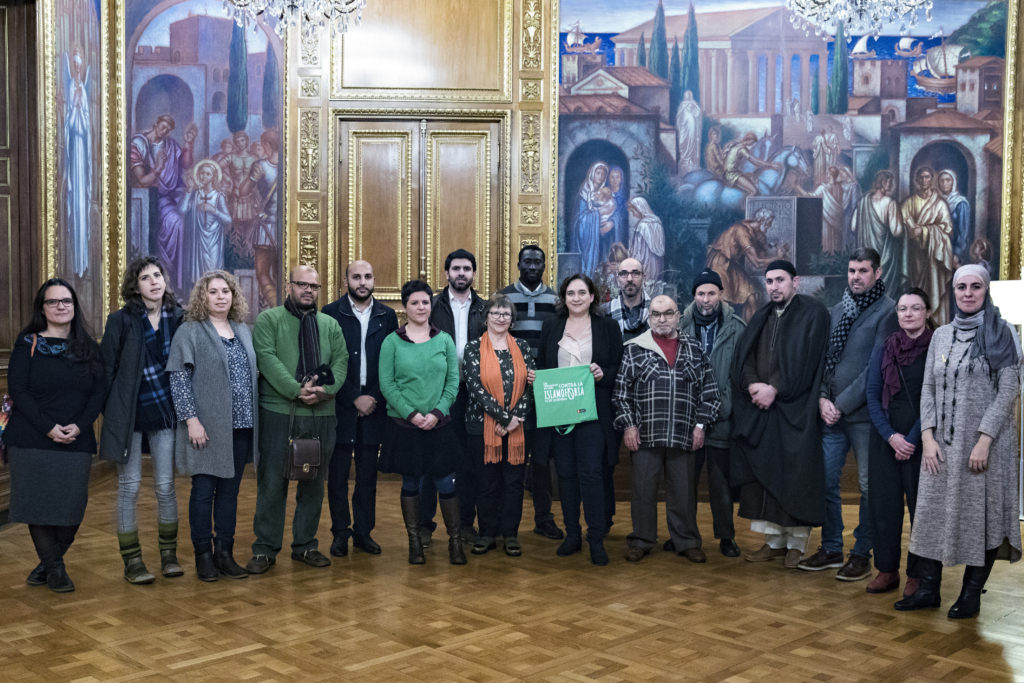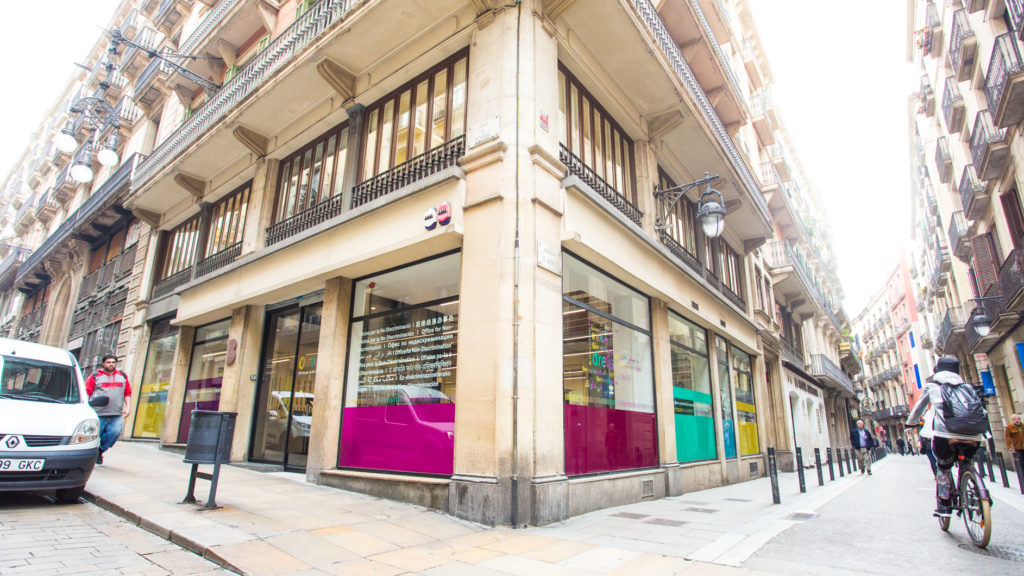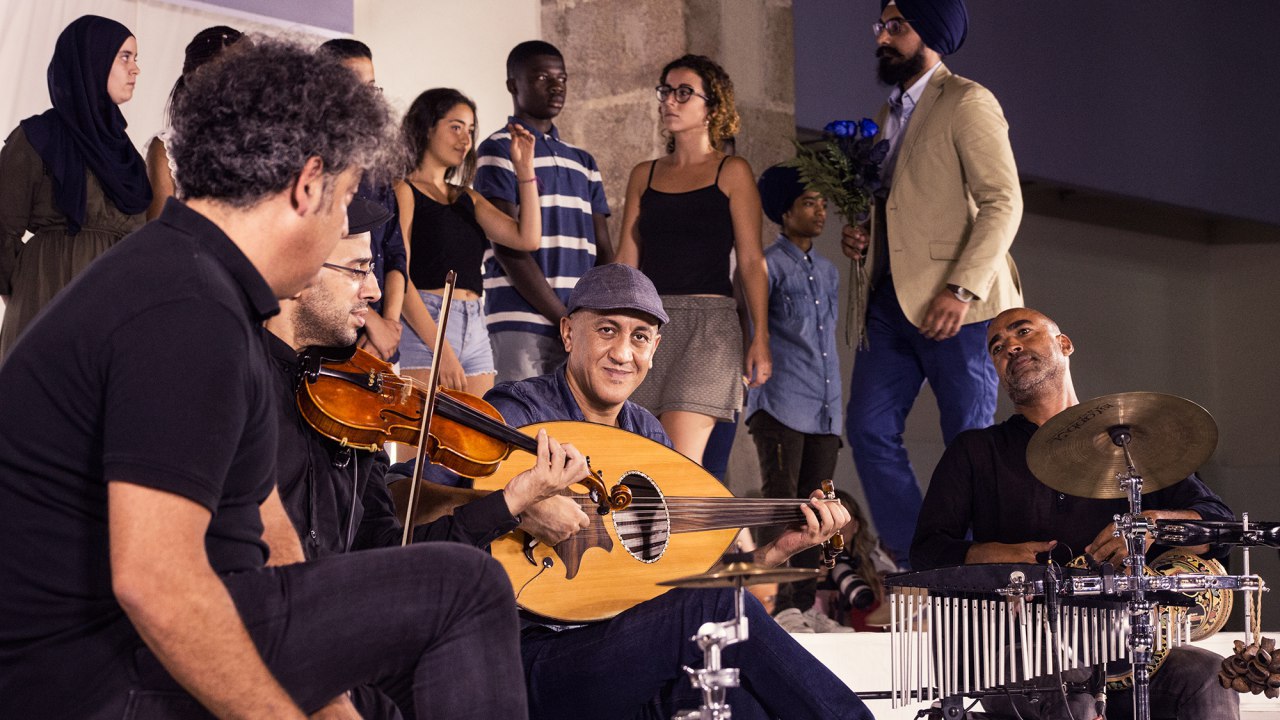Leading the Fight Against Socioeconomic Inequalities: Interview with Barcelona’s Aida Guillén Lanzarote
Written by Wilson Melbostad
Photographs courtesy of Aida Guillén Lanzarote
The World Human Rights Cities Forum, taking place here in Gwangju from October 18–21 at the Kim Daejung Convention Center, will showcase several key figures who serve to guarantee the implementation of human rights policies at the city and municipal levels. City government officials, academics, and members of civil society from a total of 37 countries will be on hand for what is sure to be a thought-provoking collaboration and exercise of human rights. Since human rights serve as a universal freedom to be shared by all citizens, those from all walks of life are strongly encouraged to attend the event. To prepare those with prospective interest in the forum (or the utilization of human rights in general), we sat down with one of the forum’s headline speakers, Ms. Aida Guillén Lanzarote. Ms. Guillén, currently serving as the director of the Department of Citizens’ Rights and Diversity for the Barcelona City Council, has been working in various human rights-related posts for the past fifteen years. She particularly specializes in the local dimensions of human rights such as keeping local authorities accountable to agreed-upon standards as well as educating citizens on their right to access local mechanisms protecting human rights. Ms. Guillén graciously consented to the following interview.

Gwangju News (GN): Please tell us a little about yourself?
Aida Guillén Lanzarote: I was born in Valencia, but I have lived in Barcelona since 2002, where I have settled down with my family and kids. I studied physics in Valencia, Ulm, and Austin, but I soon realized that I wanted to do something different professionally. It was at that point that I started to study international relations and human rights, and decided that I wanted to devote myself to these causes. I’ve been the director of the Department of Citizens’ Rights and Diversity for Barcelona City Council since 2016. There, we have different action plans, all devoted to groups in situations of vulnerability such as migrants, foreigners, LGTBI, Roma people, people with disabilities, as well as religious groups.
GN: What was your initial inspiration for pursuing a career in human rights and public policy? Was there a particular experience you had that helped you decide to shape your career in this direction?
Lanzarote: I have always felt the need to change things I didn’t like, or that I thought were wrong. Especially, I would do this by trying to understand everyone as well as every idea and what was behind such ideas. Such thinking is probably a product of my scientific background at work, trying to figure out the explanations for how things are and how people behave. I found that the human rights world had this normative feature but, on the other hand, was also flexible enough to allow for complex explanations to develop. While studying in the USA, I got close to grassroots movements on behalf of the abolition of the death penalty, and I was deeply involved in some very specific and touching cases. That was the beginning of my activism, and then I moved on to campaigns against torture and ill treatment as well as for the protection of other civil and political rights.
GN: I see that one of your first jobs was working as a human rights officer in Kosovo? Can you tell me a little bit more about that experience? What type of work did you do there? What did your experience in the Balkans contribute to your career in the long term?
Lanzarote: I was working for the Organization for Security and Co-operation in Europe (OSCE) in a small village in the Serbian part of the territory. My task was to advise the local government on how to apply international standards of human rights to municipal policies. It was tough work because my knowledge of the territory was limited, and I always knew that I was learning more than I was contributing. The experience definitely helped teach me to learn how to work in a culturally diverse environment and to acknowledge the positive values of every single opinion and point of view.

GN: Can you explain to our readers a little about the Spanish region of Catalonia, where you currently reside? I understand that the region is rich in tradition and is very proud of its protection of human rights?
Lanzarote: Catalonia is a region in Spain that is nowadays involved in a pretty strong independence movement. Catalonia’s tradition to human rights protection goes as far back as the fight against Franco’s dictatorship from 1939 to 1978. During that time, civil and political rights were systematically violated through forced disappearances, illegalization of political parties, censorship, as well as even murders and torture. Civil resistance was strong in the whole country and Catalonia was a very active part of it. Nowadays, human rights claims also tackle issues of economic and social rights such as housing, education, health care, as well as the fight against austerity measures and destruction of the welfare state.
GN: From your experiences, what have you learned about the human capacity for racism or bigotry towards other humans? Are there particular circumstances that you’ve found give rise to greater levels of hatred in people?
Lanzarote: From my personal experience, racism often hides a more classist problem. Behind a racist action we can almost always find a relating economical circumstance as well. For instance, there are not racist aggressions towards rich black or Muslim citizens. Aggressions and discriminatory actions have disfavored citizens as targets most of the time. That tells us that one of the most effective measures against racism is fighting against socioeconomic inequalities.
GN: There are more displaced peoples currently than ever before in human history. Despite this, there seems to be a widespread backlash from governments, and from some of their citizens, in accepting these people into their countries. It seems that Barcelona as a city has long been an advocate for refugees and refugee rights. What has Barcelona done to convince its people to accept refugees into the community? What has been your biggest hurdle in convincing others that refugees shouldn’t be viewed as detrimental?
Lanzarote: We have a long history of hosting. People from different parts of Spain and Catalonia have contributed greatly into making this city the welcoming place it is today. We do believe that when it comes to convincing people, using emotional messages that speak to our hearts is most effective. But it’s not just about making people feel compassion. It is also important to educate others in how to understand and connect with other people and their feelings. From an intercultural perspective, the key is interaction in critical dialogue. If you know your neighbor, if you know his or her name and his or her history, it is much more difficult to hate that person as well as develop indifference to what occurs to them. So, one of the keys is putting people in contact so as to generate the space and opportunities to interact and partake in dialogue.

GN: Transitioning gears a little bit, I am wondering how, over the course of your career, you’ve managed your work/life balance? What activities do you pursue outside of work to keep yourself grounded and sane?
Lanzarote: Spending quality time with my family, especially with my two little kids, is what keeps me grounded. I also enjoy reading literature.
GN: In light of the upcoming World Human Rights Cities Forum, what do you think about the role cities can play in helping to enforce both human rights mechanisms as well as establishing an overall culture of embracing human rights? How can national governments and cities collaborate further on human rights issues moving forward?
Lanzarote: The role cities can play and are actually playing is crucial. By being the closest administration to citizens, cities are given a privileged position. This position entails both analyzing and acting on what the real problems of people are. States should be decentralized, the more the better, and hand off more responsibilities to cities. Such a move would allow for proper allocation of necessary resources as well as leave enough autonomy to the cities to decide what their priorities are. The World Human Rights Cities Forum is a great opportunity to get to know other cities’ initiatives as well as to share our own policies through dialogue with others. Knowing what people think about what we try to achieve can help us to improve and always do better.
GN: Can you speak briefly about what accomplishment in your career you are most proud of and why?
Lanzarote: I’m very proud of the work we have been doing with two different groups in the city. Firstly, our Muslim neighbors are nowadays the most discriminated ones as far as racism and islamophobia are concerned. We have adopted a local plan that has brought the issue to the public sphere, and we have been able to start more than 20 different measures to tackle the problem: from providing trainings to civil servants, to creating new job career opportunities, to giving legal advice for discrimination cases in our Municipal Office. Additionally, we work with the Roma population in a specific consultative body, the Municipal Council of Roma People, the only such body at a local level in Spain.
GN: Any final thoughts you’d like to share with us?
Lanzarote: I really hope that our ideas can be inspirational to everyone at the upcoming forum, and I’m looking forward to being inspired by others.
GN: Thank you for making time for this inspirational interview with the Gwangju News. I hope to meet you in person at the upcoming World Human Rights Cities Forum in Gwangju.
The Author
Wilson Melbostad is an international human rights attorney hailing from San Francisco, California. Wilson has returned to Gwangju to undertake his newest project: the Organization for Migrant Legal Aid (OMLA), which operates out of the Gwangju International Center. He has also taken on the position of managing editor of the Gwangju News.





